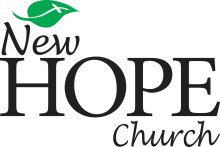All of our beliefs are based on Scripture. Sometimes we refer to them as “Reformed,” “Calvinistic,” or “Covenantal.” We believe they are best expressed in the Westminster Confession of Faith and Larger and Shorter Catechisms.
Christian
We are foremost a Christian Church. We affirm one living and true God who is triune, meaning that there are ‘three persons in the Godhead; the Father, the Son, and the Holy Ghost; and these three are one God, the same in substance, equal in power and glory.’ We are hopeless without the mercy and grace of God, who has alone saved us from our sins through Jesus Christ, and gives us life by His Holy Spirit.
Biblical and Confessional
We believe that the Bible is the inspired, inerrant, and authoritative word of God, which consists in the 66 books of the Old and New Testaments. Since the Bible is the sole rule for our faith and life, it might seem odd to some that we hold dearly the Westminster Confession of Faith and Catechisms. While they are not on par with the bible, we believe that those documents summarize the biblical Christian faith. We also frequently confess the Apostles’ and Nicene Creeds in our worship services.
Reformed
We are a Reformed church, which means that we are in the vein of the Protestant Reformation which occurred in 16th century Europe. Men such as Martin Luther in Germany, John Calvin in Switzerland, and John Knox in Scotland led the church to Reform her doctrine and practice according to the word of God, departing from many tenets of Roman Catholicism. The slogans of the Protestant Reformation were ‘sola gratia’ (grace alone), ‘sola fide’ (faith alone), ‘solus Christus' (Christ alone), ‘sola Scritpura' (Scripture alone), and ‘soli Deo gloria’ (to the glory of God alone). That is to say that we sinners, are saved by grace alone, through faith alone, in Christ alone, according to the Bible alone, to the glory of God alone!
Presbyterian
We are a presbyterian church, which refers to our form of government or how our church is structured. The word ‘presbyterian’ comes from the New Testament Greek word for ‘elder,’ which is ‘presbuteros.’ See for instance, Acts 20:17, I Timothy 3:1-7, and Titus 1:5-9. We distinguish between ruling elders and teaching elders or pastors (I Timothy 5:17). The leadership of each local church consists of these elders (called the session), and deacons.
